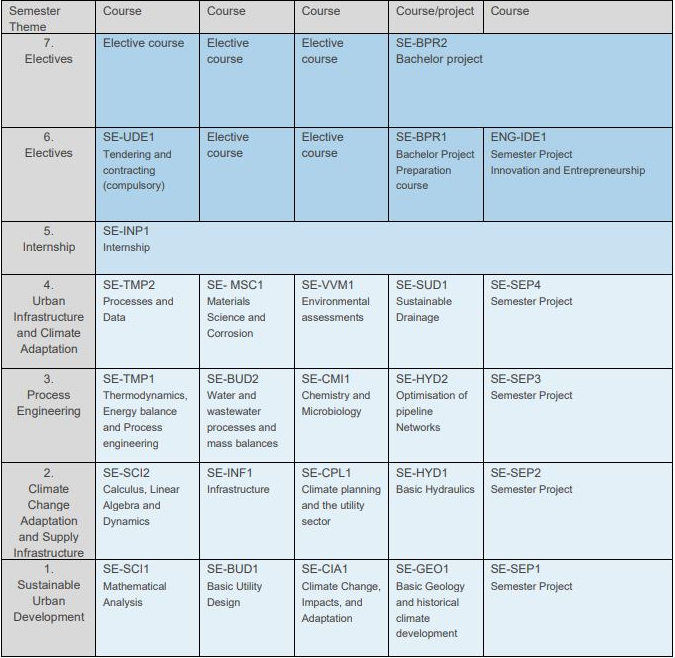In the following, you can see how the Climate and Supply Engineering programme is structured and what the content of each semester is.
Go to the complete course catalogue
1st semester – Sustainable Urban Development
The overall theme of the 1st semester is ‘Introduction to climate change and sustainable supply’. Expanding cities are a challenge – how can we accommodate that growth in a sustainable way? In this context the semester project focuses on turning a green field into an environmentally friendly residential area.
2nd semester – Climate Change Adaption and Supply Infrastructure
At the second semester, you will complete a project, where you must plan an infrastructural project assignment. The project aims to provide students with the understanding of a basic concept of planning and construction of pipes for drinking water and district heating supply, and for a management of wastewater and rainwater.
3rd semester – Process Engineering
The overall theme of the 3rd semester is processes in water, wastewater and energy supply systems. You will complete a project with focus on analyses and calculations of processes related to optimising an existing supply process (drinking water, wastewater or district heating).
4th semester – Urban Infrastructure and Climate Adaption
At the fourth semester, project work is being carried out to focus on upgrading of intersections in urban areas with associated design, adaptation and modelling of the supply systems.
5th semester – Internship
During this semester, you will take part in an internship in a company. The internship is an important part of your education where you will test your knowledge and skills in practice.
6th semester and 7th semester – Electives and bachelor project
On 6th and 7th semester, you may specialise your education by choosing elective courses within the same subject area. Alternatively, you can choose freely between all subject areas. Subject areas are e.g. Water Supply, Waste Water Supply, District Heating, all with a focus on climate change and sustainability.
A bachelor project concludes the programme, accounting for 15 ECTS of the full 210 ECTS.
Example of programme structure:
